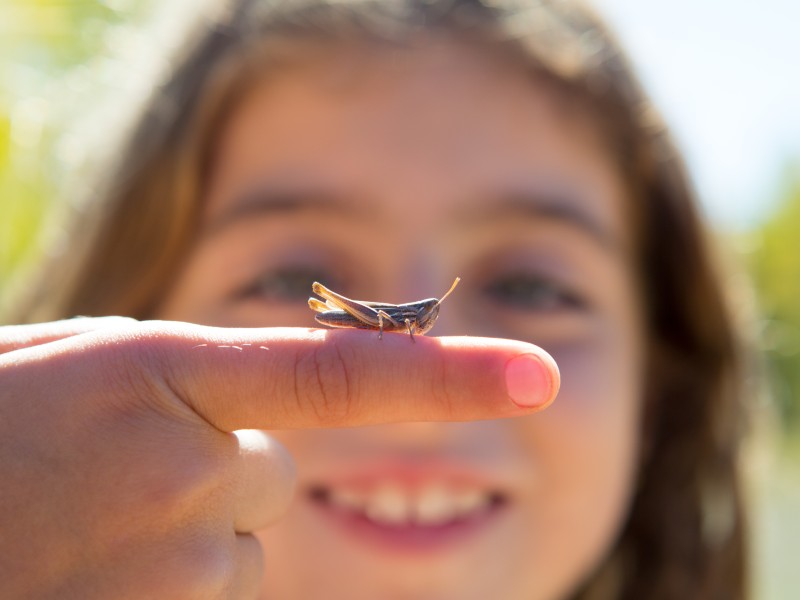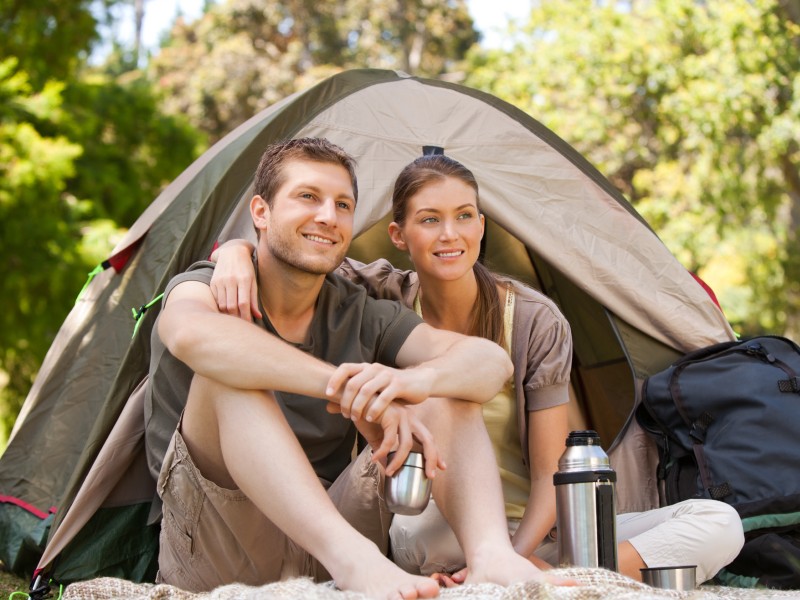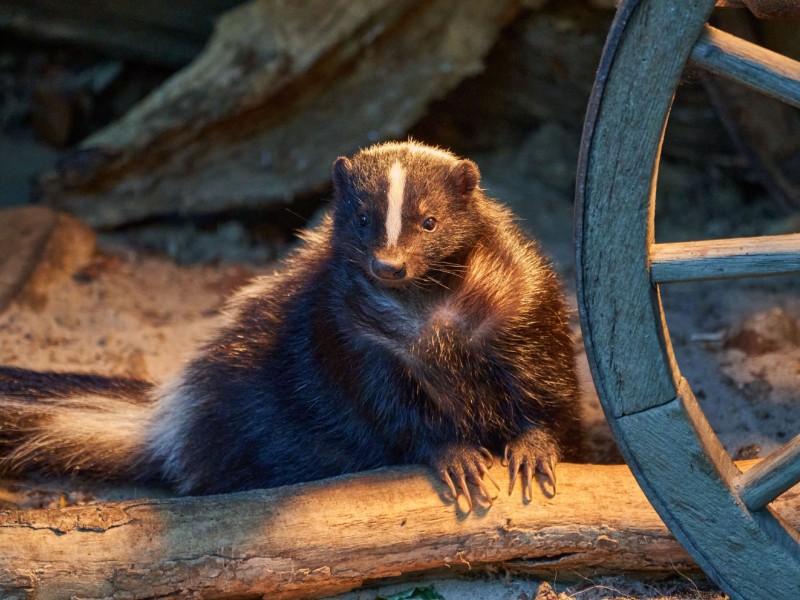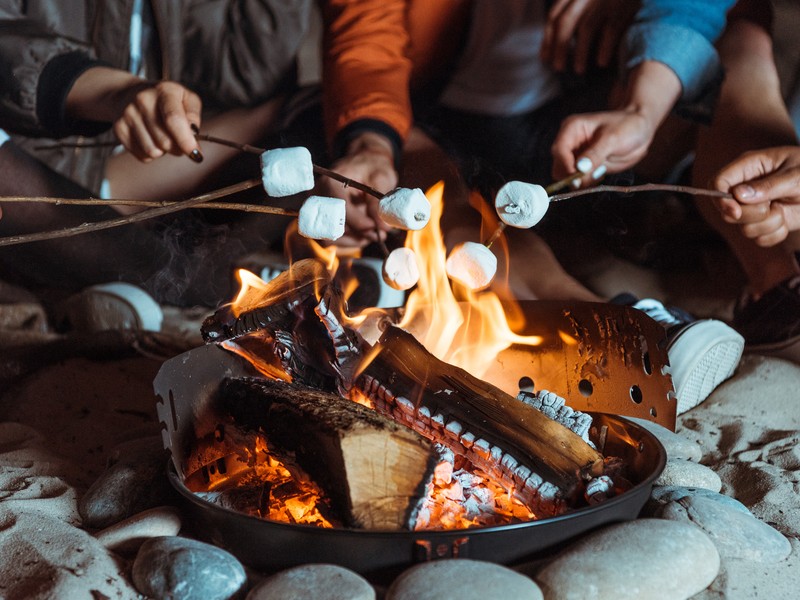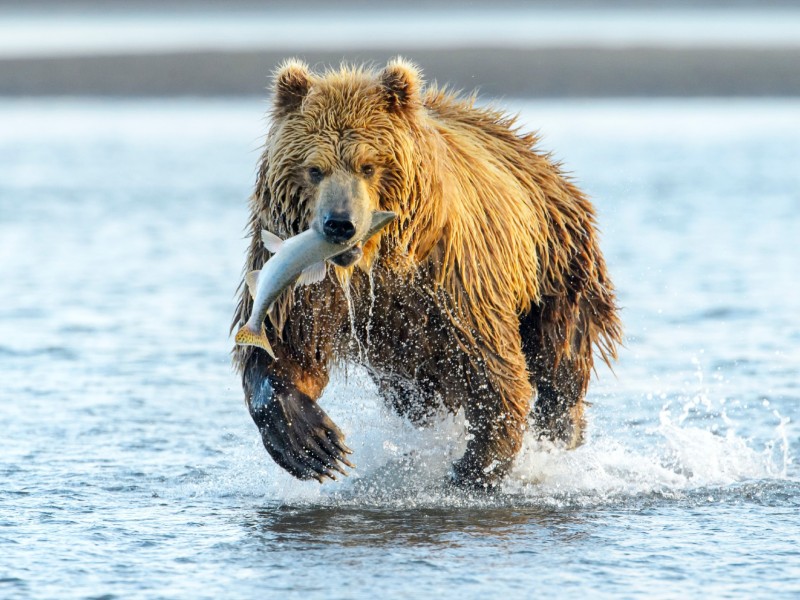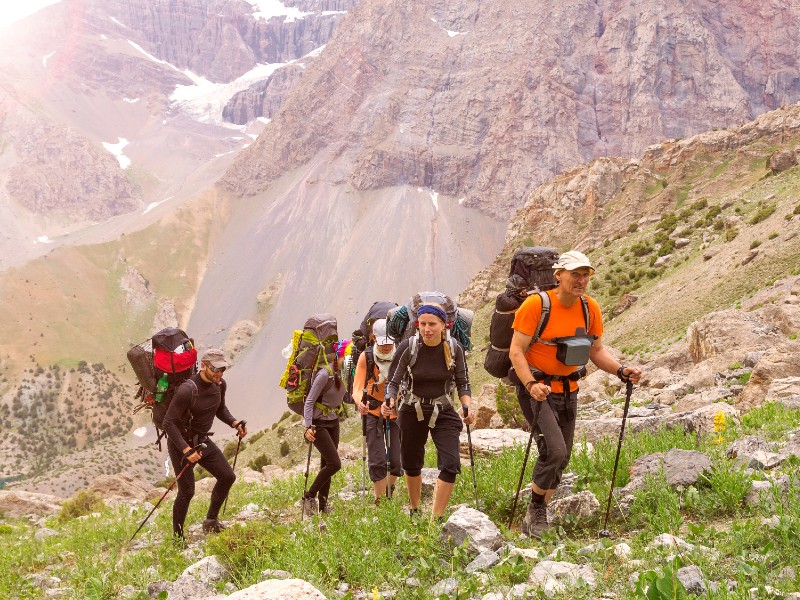Tip 1: Choose the Right Season for Camping to Handle Bugs
There are certain times of the year that are better for camping. After it rains a lot, there are more insects and spiders because the bugs tend to reproduce when the weather is hot and humid. While you may not want to go camping during the winter, it is better to go camping when the temperature is slightly cooler.
Tip 2: Selecting the Proper Location
Don’t choose a damp spot where there is standing water for mosquitoes and flies to breed. Look for dry ground, and also place plastic tarps on the soil to keep the water away from your sleeping bags and supplies.
Tip 3: Make Sure that Your Camping Supplies and Clothing Are Clean
Many bugs are attracted to certain odors, so make sure that you handle your clothing and camping supplies. Make sure to wash your clothing and sleeping bags in fragrance-free laundry detergent, or alternatively, you can look for laundry detergent that contains insect-repellent ingredients.
Tip 4: Keep Coolers and Food Storage Containers Clean
Avoid attracting flies, ants, and bees by keeping any coolers or food containers clean. These bugs are attracted to food debris, and before you know it, the insects will also begin to bother you, making you miserable on your camping adventure.
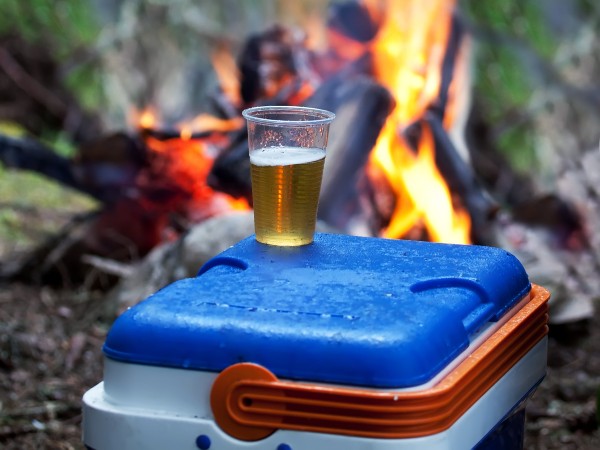
Tip 5: Use Spray Insect Repellents
Look for spray insect repellents that you can bring along while camping, and begin by spraying the substances on the tents and tarps. Remember that you will need to reapply insect repellents frequently, especially if it rains.
Tip 6: Build a Safe Campfire
Choose a safe location for building a campfire, making sure to have buckets of water nearby to douse the flames. The smoke from a fire can deter many types of insects, preventing mosquito bites or infestations from flies.
Tip 7: Hang Gear from Poles
Keep the arachnids and insects away from your gear by having poles for hanging your gear. In addition to keeping the bugs out of your valuable foodstuffs, you won’t want any bugs infesting your clothing or extra footwear.
Tip 8: Keep the Tent Doors Closed
Avoid leaving the doors open on a tent because it will allow insects to enter. Choose tents that have mesh window openings and doorways to have air circulation without any infestations from biting insects.
Tip 9: Use Lanterns and Flashlights Strategically
Many types of bugs are attracted to artificial light, so you must handle your flashlights and lanterns strategically when camping. Enter your tent at dusk, making sure to close the flaps of the tent before you use any of your lighting devices.
Tip 10: Keep Insects Out of Your Clothing
Look for straps that you can handle around your ankles and wrists to keep bugs from entering the legs of your pants or the sleeves of your shirt when camping. Wear a shirt that covers as much of your neck as possible, and also, tie a scarf or a bandanna around your neck.
Tip 11: Insect Repellent Skin Care Items
Bring along a bath soap that contains ingredients that will repel bugs, and also have lotions or creams that you can rub into your skin to keep the insects away from you. Remember that you will need to reapply the repellents frequently to avoid any stings or bites.
Tip 12: Avoid Attracting Bees and Wasps
Wasps and bees are attracted to bright colors that resemble the colors of flower petals, so you should choose neutral colors for garments instead. Experts recommend wearing white or tan shirts and pants that are more difficult for flying insects to see.
Tip 13: Use Caution While Cooking and Eating Food
Bugs are attracted to the foods that you are cooking and eating, but if you keep containers covered and remain near the smoke from a campfire, then you are more likely to handle the problem when camping. You can also take your food inside a tent to eat it, but make sure to close the tent’s door first before opening it.
Tip 14: Bring Along a First-Aid Kit
Despite all of the best precautions, you can get stung by a honeybee or bitten by mosquitoes, so you should have a first-aid kit. Learn how to remove a bee’s stinger quickly to avoid any extra pain. You should have tweezers to pull out a honeybee’s stinger, and also, you might need to use this device to remove a tick from your skin.
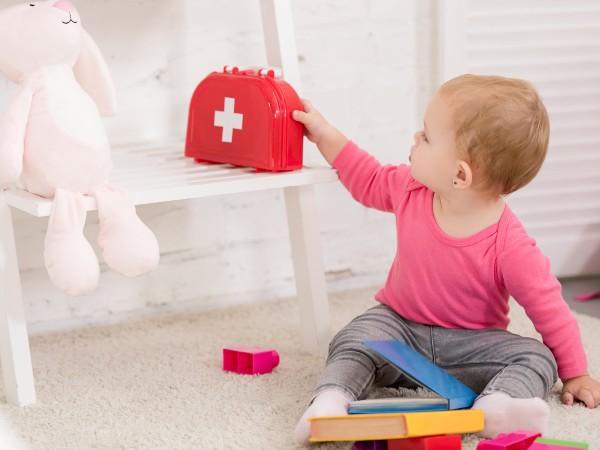
Tip 15: Ointments for Bites and Stings
Have anti-itch ointments for the bites from mosquitoes, and also, have pain relievers to cope with the discomfort from a sting from a wasp. When dangerous bug bites or stings, you may need to seek medical attention right away.
Tip 16: Understand What Poisonous Spiders Look Like
You should understand the types of spiders that live in the campsite area so that you can avoid a bite from a dangerous black widow spider or a brown recluse spider.
These varieties of spiders live in certain types of habitats, and the arachnids build particular shapes or sizes of webs, helping you to recognize a dangerous situation.
Explore the Great Outdoors with Us!
Tip 17: Use Mosquito Nets
Bring along lightweight mosquito nets to place around your sleeping bag and eating area to keep the insects from biting you. These types of nets will also keep other varieties of flying insects from your body and your camping gear.
Tip 18: Stay Away from Beehives and Wasp Nests
Remain aware of your surroundings to avoid camping or hiking near a wasp nest or beehive.
Listen for buzzing sounds and look carefully for any flying insects. Bees and wasps can lurk inside hollow-standing trees or logs that are on the ground.
Some of these insects will also live underneath rock ledges or beneath the ground.
Tip 19: Citronella Candles and Sprays
Rather than using man-made chemicals to deter bugs, you can use natural essential oils. Most insects do not like the scent of citronella, and you can find candles that contain this essential oil.
You can also mix citronella oil with water in a bottle to spray around your campsite.
Tip 20: Bring Along White Vinegar
To keep ants away from your tent and other camping gear, bring along a bottle of white vinegar. You can mix water and white vinegar together in a spray bottle to use on the soil around your camping tent and picnic table.
Reapply the white vinegar and water each day to deter ants.
Tip 21: Battery-operated Bug Light
Bring along an easy handle battery-operated light that will attract flying bugs into the item where they’re zapped by electrical wires when camping. These devices are useful at particular times of day when you are trying to cook food or eat a meal.
Tip 22: Use the Right Type of Essential Oil
Essential oils can repel bugs, but certain fragrances are better than others. You can use eucalyptus, cinnamon, or lavender essential oils on your skin, but you can also spray these substances on your camping tent and sleeping bag to deter the insects.
Tip 23: Increase Your Intake of Vitamin B
Certain nutrients in our body may naturally deter bugs from biting or stinging. Many campers recommend increasing the intake of vitamin B by taking dietary supplements that contain this nutrient or eating foods that include dark leafy green vegetables, eggs or brown rice.

Tip 24: Wear Socks and Gloves
Make sure to wear thick socks on your feet while camping outside to avoid insect or spider bites on your ankles. You can also find camping gloves to wear to keep the bugs away from the backs of your hands and your fingers.
Tip 25: Find a Camping Hat
If you wear a hat, then you can keep bugs away from your scalp and hair. In areas where there are a lot of flying insects, choose a hat that has a mosquito net that you can drop down over your face and neck.
Tip 26: Don’t Sit Directly On the Ground
Avoid sitting directly on the ground while camping because insects, bugs, and spiders will crawl on you to enter any openings, which isn’t easy to handle! Bring along a small tarp that you can sit on while you are hiking, or you can have a foldable chair at your campsite.
Bug Proof Your Camp (Video)
Related Questions
- What are some of the most common bugs encountered while camping and how can their presence be minimized?
Some of the most common bugs encountered while camping include mosquitoes, ticks, ants, spiders, and flies.
Their presence can be minimized by using insect repellents, wearing appropriate clothing, keeping the campsite clean, using bug nets or screens, and avoiding areas known for high bug activity.
- How does the choice of camping season and location affect the presence of bugs?
The choice of camping season and location significantly affects the presence of bugs as certain seasons, like spring and summer, typically see a higher insect population due to warmer temperatures and increased food availability.
Additionally, locations near water bodies or dense vegetation often have more bugs due to the favorable habitats these environments provide.
- How can the cleanliness of camping supplies and clothing help keep bugs away?
The cleanliness of camping supplies and clothing can help keep bugs away by removing food residues, body oils, and odors that attract insects.
Additionally, clean gear reduces the chances of carrying insect eggs or larvae, preventing infestations in your camping area.
- What are some effective strategies for using insect repellents and campfires to deter bugs?
Effective strategies for using insect repellents and campfires to deter bugs include applying repellents that contain DEET or Picaridin on exposed skin and clothing, and setting up smoky campfires, as smoke can deter many types of insects.
It’s also beneficial to keep the campfire burning with green wood or special bug-repelling fire starters and to position yourself upwind whenever possible to allow the smoke to drift toward the areas where bugs are likely to approach.
- How can the use of essential oils, vitamin B intake, and appropriate clothing help in keeping bugs at bay during camping trips?
The use of essential oils such as citronella, lemongrass, and eucalyptus can act as natural insect repellents, deterring bugs from your camping area.
Vitamin B intake can alter your body’s scent making it less attractive to mosquitoes, and wearing appropriate clothing like long sleeves and pants can provide a physical barrier against bug bites.
"Of all the paths you take in life, make sure a few of them are dirt."
-- John Muir
